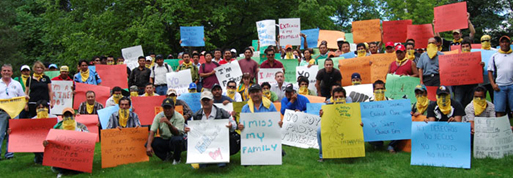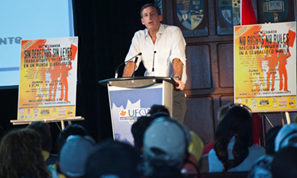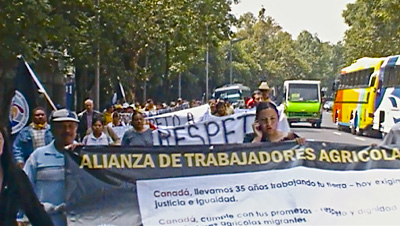Would you be willing to waive your human rights to get a job that most Canadians don’t want?
That’s what 4,000 Guatemalan men and women are asked to do when they come to work in the Canadian agriculture industry.
Before they’re allowed to make our food, Guatemalan migrant workers have to sign a contract that orders them to:
- “During your stay in Canada, you should only do the activities you are assigned to and should not distract yourself with any group or association”
- “Reasons to exclude you from the program that will force you to pay your plane ticket: alcoholism, theft, lack of respect and sexual relations”
- “Upon arrival at the farm, the employer will keep your passport for the duration of your stay in Canada”
- “Use deodorant before the flight and every day you stay in Canada”
- “Beware of having relations with women”
- “In case you needed to go back to Guatemala before ending your contract, you will have to prove that you have a good reason. Even then, the employer can choose whether to hire you the next season”
- “You should keep your hair short to avoid lice”
Guatemalan migrant workers seal the contract with a $400.00 (CDN) deposit – which is the equivalent to 17% of the average annual income for Guatemalans.
Can you imagine losing nine weeks of pay for demanding to be treated like a human being?
Stop the Injustice Of Migrant Contracts! CLICK HERE to send a quick protest letter to the politicians, bureaucrats and employers who are forcing these inhumane conditions on the people who make our food.
It only takes 30 seconds and it makes a real difference!




